A Year in Review: The Most Memorable Moments of 2016
The first beer garden took root in Allston, we all channeled our inner Pokémon Trainer, and, oh yeah—there was a big election.
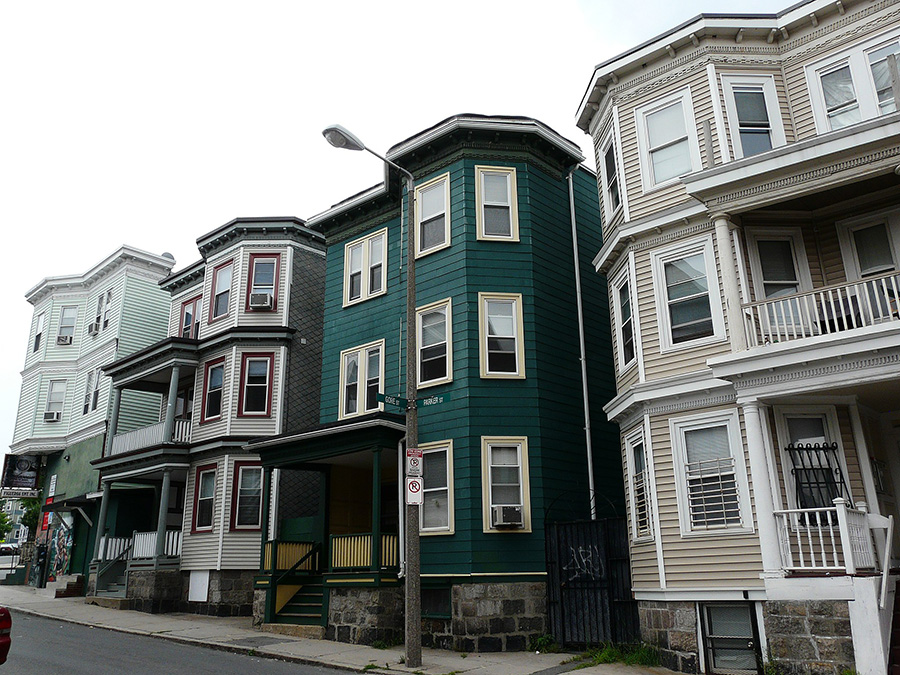
Photo via Wikimedia Commons
Fewer Bostonians Owned Homes Than (Almost) Ever Before
Census data released in early 2016 confirmed what those of us living here had already noticed: Boston is a really expensive place to live. The home ownership rate in January 2016 was below 60 percent, the lowest figure on record since the U.S. economy was in a recession in 1990. Since 2016, the homeownership rate has crept back up to 61.5%. But as Boston’s population has grown over the past two decades, developers have busied themselves with high-end properties—not exactly the places average homeowners are looking for. In November 2016, Boston voters OK’d a Community Preservation Fund, financed in part by a 1% surcharge on residential and business property tax bills, which has provided the seed money for ONE+ Boston Mortgage, a program that cuts mortgage interest rates for income-qualifying home buyers.
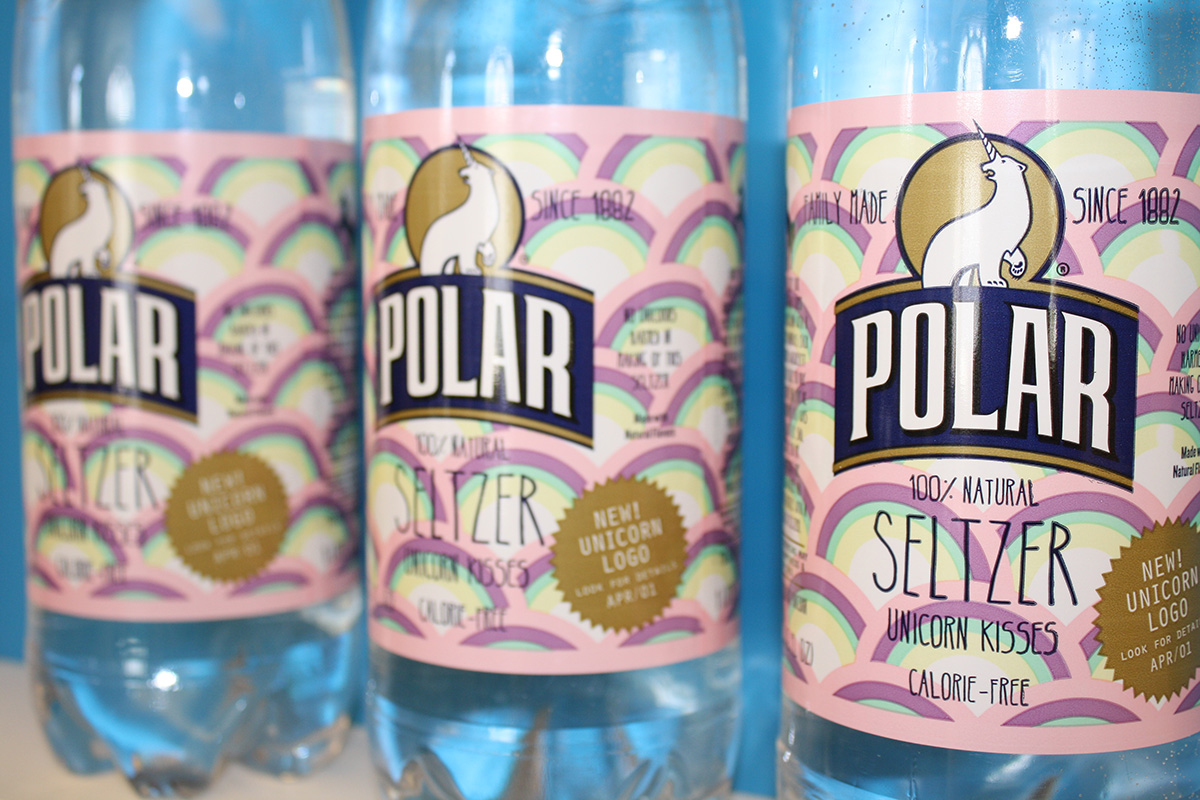
Photo by Jamie Ducharme
A Storied Local Company Begins a Magical New Era
Like a shaken bottle of fizzy water spraying everywhere, the hard seltzer craze of 2019 should surprise no one. Seltzer water exploded in popularity in the 2010s. Not only did it cut into the market share of sugary sodas, but boozy bubbles are even threatening cool-kid craft beer. Industry watchers typically cite the popularity of LaCroix for the fizzy water phenomenon: Its watercolor cans of fancy-sounding flavors like pamplemousse and passionfruit are a cultural status symbol for the self-care generation. Around here, Worcester-based Polar Beverages has been quenching our thirst for bubbles for decades, and releasing limited edition flavors for years. But the mysteriously candy-like Unicorn Kisses marked a new beginning for the nearly 140-year-old company. Since initially introducing the conceptual flavor in March 2016, Polar has added three more mystical flavors to their “Impossibly Good Seltzer Jr.” product line, now available year-round; updated the labels for its seasonal releases to colorful, Instagram-ready patterns, in lieu of their classic color-block look; and in 2019, even launched its own brand of boozy bubbles with Arctic Summer. The future is fizzy.

Anthony’s Pier 4 in Boston in 2012, a year before it closed and four years before the legendary restaurant was demolished. / Photo by Dale Cruse on Flickr/Creative Commons
Anthony’s Pier 4 Meets the Wrecking Ball
There was no shortage of change along the South Boston waterfront this past decade, but no landmark we lost was more legendary than Anthony’s Pier 4. Among the highest-grossing restaurants in the country in its heyday, it served the likes of Elizabeth Taylor, Johnny Carson, Julia Child, and more, and was an icon of the Boston dining scene for decades. The restaurant closed in August 2013 (an ending that occurred, coincidentally, during the Whitey Bulger trial—it was the site of one of the convicted crime boss’s most notorious murders), but it finally met the wrecking ball in April 2016 to make way for a nine-story luxury development. The new, angular building juts out like a peninsula, offering panoramic harbor views to its 100-plus condo owners, plus public park space for the rest of us to enjoy. The ground-floor retail is now mostly open, home to new outposts of Tatte, GreCo, and farm owner and sustainability advocate Kristin Canty’s Woods Hill Table—a Concord favorite, with the pedigree and potential to become a new Boston classic.
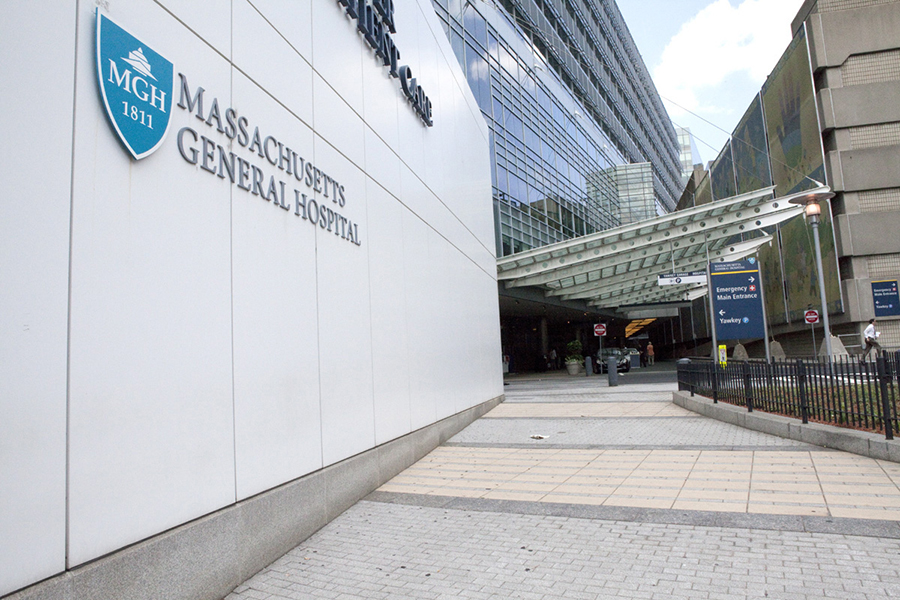
Photo by Samantha Carey
The First Successful U.S. Penis Transplant
We wouldn’t wish a broken or cancer-stricken penis on our worst enemy—but if a man is going to need such unimaginable surgery as a penis transplant, he would want to be in the medical mecca of Boston. When an unlucky Bay Stater named Thomas Manning required such surgery in May 2016, after his own organ was amputated to treat penile cancer, Massachusetts General Hospital doctors made him the third person ever, and the first American, to receive a penis transplant. Going public was Manning’s way of destigmatizing such a personal procedure. “I have a choice. I can be up front or I can hide,” he told Boston. “I’m just not in the mood to cover up something that I just don’t have to.”

Aeronaut Allston in 2016. / Photo courtesy of Aeronaut Brewing Company
Boston Gets Its First Sip of the Beer Garden Craze
For the past few summers, beer garden pop-ups have taken post-work crowds of young professionals and weekend clans of stir-crazy families alike out of Boston’s restaurants and bars, and into its public parks and private developments around the city. Along the way, the trend has started to amplify the conversation around the need for updated drinking laws in Boston. The city hosted nearly a dozen temporary, outdoor bars last summer, all made possible with one-day beer and wine licensing. In summer 2016, development firm Graffito pioneered this interpretation of a law meant for one-time special events, on behalf of Aeronaut Brewing Company and Graffito client Harvard University—thus skirting around the City of Boston’s outdated liquor licensing laws, which require traditional restaurants to prepare food in order to allow outdoor drinking, among other stipulations. “Frankly, the city was interested and willing… [to create] more opportunities for communities to come together in unique spaces,” recalls Graffito neighborhood strategy and development director Gustavo Quiroga. Using one-day licenses was “a tool to allow that.” The city was right that Bostonians were thirsty for more family- and dog-friendly options for easy, inexpensive entertainment. This past summer, the city overflowed with hotspots from Trillium, Castle Island, Cisco Brewers, and more—and even had its first open-air wine garden.
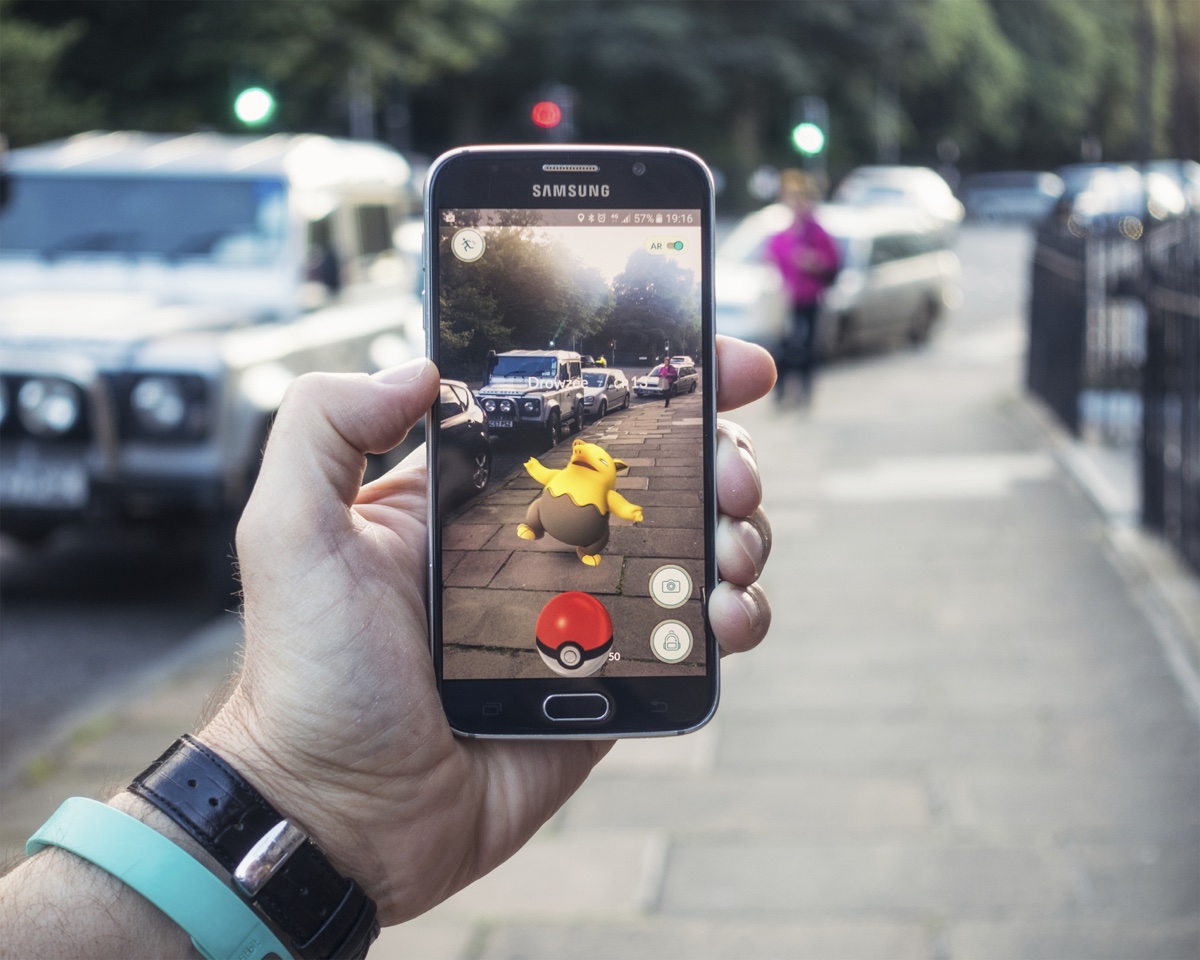
Photo via iStock/George Clerk
An App Obsession Made All of Us Pokémon Trainers
Jigglypuff in the Public Garden, Pikachu in Kenmore Square, and a Squirtle at MIT—during the summer of 2016, we caught ’em all, thanks to the phenomenon called Pokémon Go. The augmented reality app, which uses GPS technology to surface Pokémon in real-life locations, sent phone-wielding folks all over the place to find and catch different creatures. It had numerous unintended effects, too: The app led two wannabe Pokémon Trainers in Lowell to get an overdosing man the medical attention he needed, and the company ONE Condoms used the Pokémania as an opportunity to promote safe sex to players on the Boston Common. Just how obsessed were Bostonians with playing Trainer? Pokémon Go was the city’s most-searched term on Google in 2016. I mean, what else did we need to know about that year?

Photo via AP/Gage Skidmore
The Nation Is More Divided Than We Massholes Realized
On November 8, 2016, a long and contentious presidential campaign drew to a close—though not the way more than 85 percent of Bostonians had hoped it would. Donald Trump became the 45th president of the United States. Trump’s victory shocked most Massholes—but the night before the election, the future president had invoked the support of New England’s patron saints, Tom Brady and Bill Belichick, from the podium in New Hampshire. The president-elect had spent the final weeks of his unorthodox campaign denying sexual assault allegations, and hammering on about how his opponent, Hillary Clinton, and her elite cronies had “rigged the election”—ironically, as we now know, considering how much election interference was later revealed on his behalf. Boston was fired up by the shocking turn of events: The next night, thousands of protestors took to the Common, and the historic Women’s March in January was the first of a series of inspiring demonstrations in 2017. Since Trump took the White House, the state has felt the repercussions and realities of a Trump presidency, and it’s stayed mad: His approval rating here is the lowest in the country.
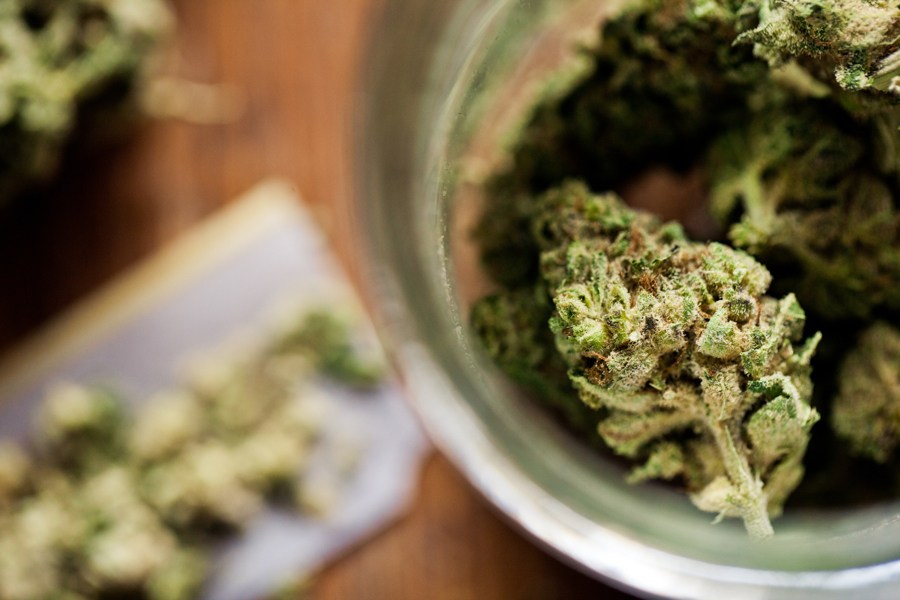
Photo via iStock.com/MmeEmil
Massachusetts Voters Say “Legalize It!”
Massachusetts became the first East Coast state to legalize recreational cannabis by green-lighting a ballot initiative during the November election. As of December 15, 2016, of-age adults in the state have been able to privately use and possess marijuana, and also grow up to 12 pot plants at their homes. The vote set the course for pot shops to open as early as January 2017, but it would be another two-plus years before the Boston area welcomed its first, and so far only, pot shop—Brookline’s New England Treatment Access, or NETA—in March 2019. Now home to more than 30 retail stores from Nantucket to Williamstown, Massachusetts tax collectors recently told lawmakers they expect to rake in between $93 million and $173 million in legal marijuana revenue in fiscal year 2019. Question 4 was just the latest in a series of Massachusetts efforts around the still-federally-illegal herb, following decriminalization in 2008, and legalizing medical marijuana in 2012. Cannabis advocates campaigned for years to legalize weed in true-blue Massachusetts, and its passage was a bright spot during the election that also gave us President Donald Trump.
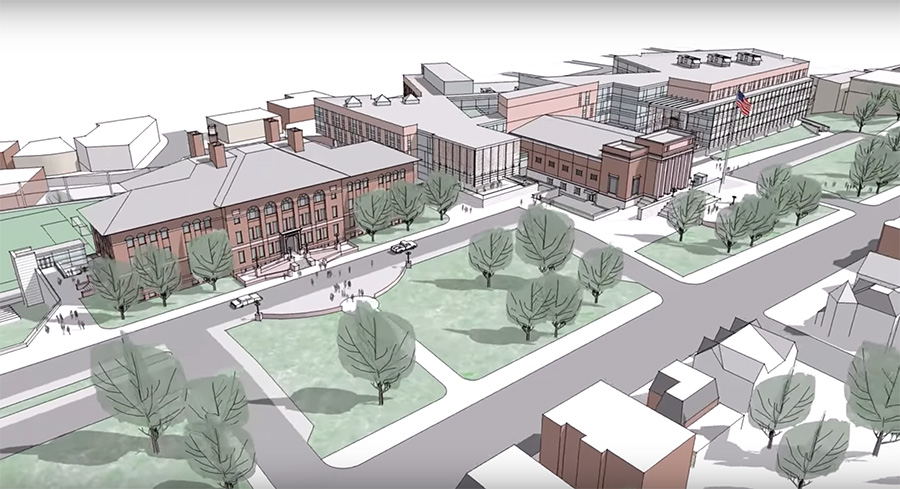
2016 rendering of the proposed Somerville High School. / Image via SomervilleCityTV/YouTube
Somerville (Briefly) Holds the Record for the Most Expensive High School Building Plan, Ever
Besides the Donald Trump presidency and legal weed, the other big result to come out of the 2016 election was the City of Somerville’s $256 million high school. The 1,590-student facility remains under construction, on track to open in spring 2021. A whopping 72 percent of Somerville voters approved the big-budget ballot item, which, at the time, was the most expensive high school project in Massachusetts history. Since then, though, more local schools have set costly plans in motion, including a $343 million high school in Lowell. “These projects are falling victim to the economy we find ourselves in,” Jack McCarthy, executive director of the School Building Authority, told the Boston Globe. The amount of building going on now, as opposed to during the most recent recession, is partially to blame, he said, as are “complex site issues,” like the fact that Somerville has to build on its existing school lot because no other land is available. These are big investments, but they’re big investments in the state’s future.
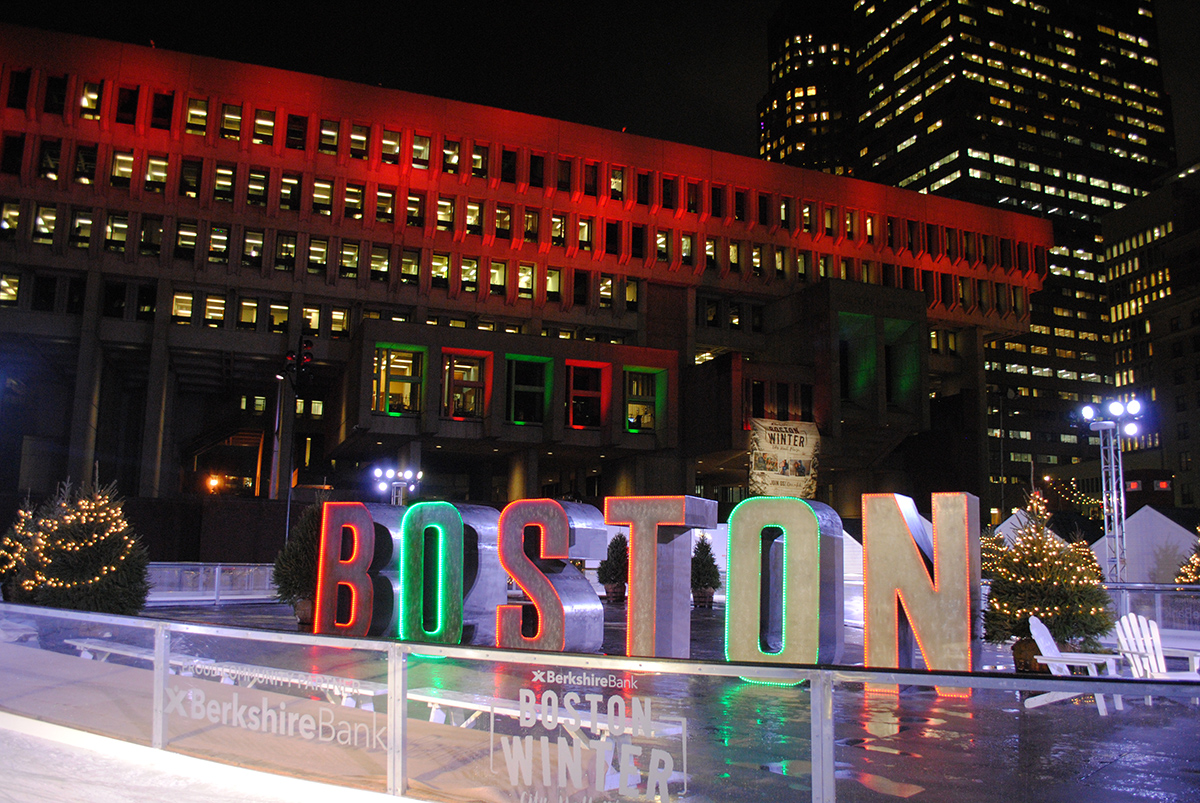
Photo by Madeline Bilis
“Boston Seasons” Begin at City Hall Plaza
After the unrelenting snowstorms of 2015, the phrase “Boston Winter” might have sent chills down the spines of everybody within the 495 belt. Instead, it was the unimaginatively named, but actually really cool activation of City Hall Plaza, which featured an 11,000-square foot ice skating path, a holiday shopping market, and a cozy “Urban Lodge” for imbibing hot cocoa and mulled wine. Boston Winter was the first initiative of Boston Seasons, a three-year effort led by Mayor Marty Walsh’s office to make better use of our much-maligned brick expanse. Boston Seasons evolved into the summertime pop-up, the Patios, which brought mini-golf and a Wachusett Brew Yard beer garden to City Hall Plaza; and it paved the way—pun not intended—for the overhauled “People’s Plaza.” During City Hall’s 50th anniversary year, Walsh announced plans for making City Hall Plaza more accessible and environmentally friendly, with infrastructure and amenities like play areas for children, and space for retail and civic engagement. The People’s Plaza could open in 2021.

